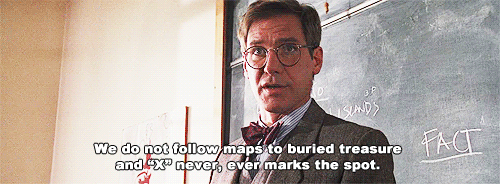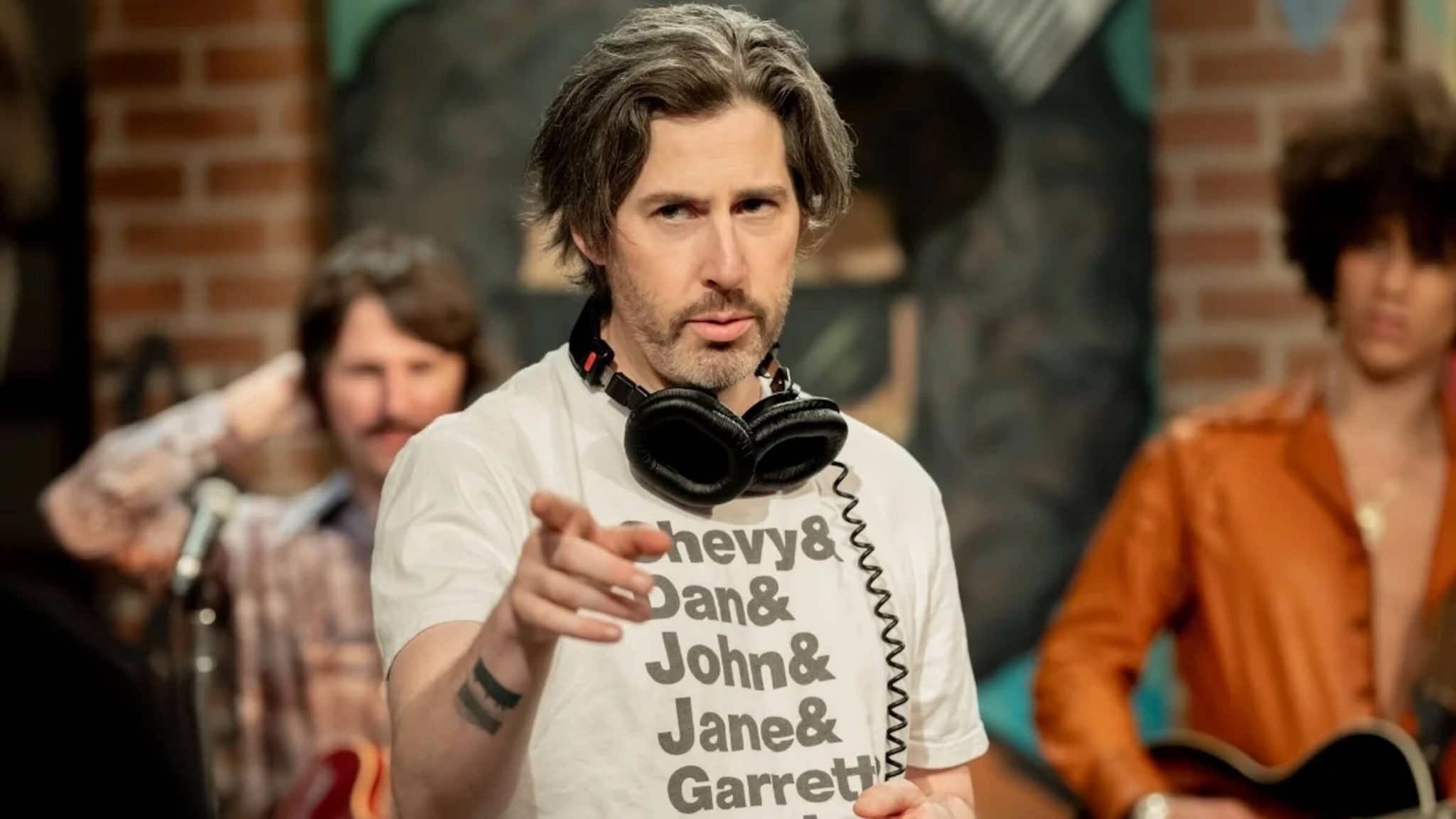
Does a studio script reader read every page of the screenplay? Do they quit on the tenth page if they're not interested? Are they just broken-down screenwriters taking out their angst on other people's blood, sweat, and tears? If you've always craved for the truth behind these Hollywood gatekeepers, you've come to the right place.
My name is listed below, and yes, I'm a former studio script reader.
You've likely watched interviews, been in the audiences of screenwriting conference panels, or read blogs written by dozens of different — and better — versions of me.
The story of how I got into this celebrated and often bemoaned position is no different than most, so we won't get into that. I was either an intern that became an assistant, a struggling screenwriter that had a knack for story analysis who found himself at the right place at the right time, or a writer that talked a studio development executive into giving him a shot — maybe a little of all three.
The origin story of a studio script reader isn't often that exciting. And the job itself is far from glamorous.
The reason I'm here is to confess, explain, and try to shed a little light onto the faceless silhouette of the studio script reader — the very person that holds your destiny in their hands.
Note: Since I'm a former studio script reader, I'll be confessing from the perspective of my past self in the present tense.
Confession #1 — "I don't want to find an amazing screenplay. I NEED to."
It's never just a want. It's a need. When you're the filtration system of an industry that has tens of thousands of products (screenplays) that need to be categorized into just three categories — pass, consider, recommend — and 99% of them aren't even close to being ready to be read by your bosses, finding an amazing screenplay that is good enough to place the fate of your job on is a genuine, helpless, and desperate desire.
So many screenwriters think that the script reader is looking for a reason to say no. There is some truth to that because those red flags of bad writing, bad conceptualization, and even something as silly as bad grammar, spelling, and sentence construction, help make the filtration process a bit easier. And if I give glowing reviews of scripts littered with those red flags, that is precisely what will cost me my job. Script readers can't chance that just because we really feel for the struggle of the screenwriter and want to give them a break.
This is not to say that a few grammar and spelling mistakes are going to ruin your script's chances. Some of the best scripts I've read have those seemingly inescapable homophone errors, grammar errors, and spelling errors. But there's a line that's often crossed where such mistakes are overly present and downright distracting. And they are often red flags towards similar lackluster care and attention towards the story, plot, and character elements as well.
I would love to find an amazing script. I dream of the day that happens. And keep in mind that some of my bosses may not even know what they want in the end. I'm still tasked with handing over a script that will rock their world and get them the validation they deserve in Hollywood. Keep in mind that I don't get a credit if that happens. I don't get a bonus. I don't get to meet the star that is eventually attached. It's just onto the next script for me.
So make no mistake, that reader tasked with reading your script is hoping, praying, and craving for it to be wonderful. We long to recommend something. We're like treasure hunters — but sadly, like Indiana said in Indiana Jones and the Last Crusade, "We do not follow maps to buried treasure, and X never, ever marks the spot." It's not easy finding amazing scripts.

Confession #2 - "I read the whole script. Well, most of the time."
It depends on the context. If I'm working a coverage gig on the side and a screenwriter has paid me to read the whole script and offer studio-level coverage, I read the entire thing just out of principle. I can't speak for other readers, but most I know feel the same way.
Most people think that studio script readers don't read the whole script. Surely we would have fallen in love with it had we made it to page 55 where things really got interesting, right? But the truth is, we're paid to read the whole thing, and we often can't get away with not reading it because we have to write a one to two-page synopsis of the story complete with plot twists, character arcs, and story reveals.
Why? Because our bosses don't want to read the scripts. They are the ones that don't read them, yet we take the heat for this popular — and somewhat accurate — belief of scripts not being read. But it's not on my level. If I get caught in a lie or embellishment, I'm out of a job.
If the script is a bust and, thus, an easy pass, we still have to write that damn synopsis. Now imagine having to summarize a story that you either loathe, hate, or just don't understand. Welcome to the life of a studio script reader. But I confess, if the script is that bad from the get-go and is clearly not going to get any better, I'll start scanning every ten pages and work out a synopsis from that. The funny thing is, most of these terrible to average scripts tell the story through the dialogue (bad exposition) so crafting a passable synopsis isn't that difficult.
If the script is a consider — meaning that it shows promise in the concept, writing, or combination of both — our bosses will only read the coverage looking for reasons why they should even consider reading the script themselves. Most of the time they'll judge the synopsis we write, as opposed to the actual script itself. Sad, but true.
If the script is a recommend — meaning that it is utterly perfect and I'm willing to bet my job on it — we get a pat on the back and the synopsis better be just as good as the script itself because that is still what it will be judged on a majority of the time until it gets to a certain level where, yeah, the powers that be kind of have to read the actual script.
So yes, I have to read the script — most of the time.
Confession #3 — "I can't, for the life of me, understand why anyone would want to follow the same formula or structure they read about in those books."
Look, I've been doing this for a long time. I've read hundreds upon hundreds of scripts, and no universal formula or structure equates to success. I don't care if it's saving the cat, some hero's journey, a mythical quest, some nutshell technique, or a declaration by some Oscar-winner — it's all mostly meant to sell books. And the "proof in the pudding" they offer is nothing more than hindsight being 20/20.
Sure, there's some excellent food for the brain — and I highly recommend reading some of the books I'm alluding to — but I can't grasp why screenwriters want to search for some universal beat sheet that everyone else can use. Do you want to stand out or do you want to blend in with the other thousands of screenwriters trying to do what you're trying to do? Painting by numbers will get you a mediocre script.
Script readers know the formulas that are being sold to screenwriters. They know them because they are either screenwriters themselves that have read those books, or they've read hundreds of scripts that are clearly following the same false formula to success.
And if it's not those pre-sold and packaged beat sheets and formulas, I'm reading near carbon-copy, trend-chasing retreads of last year's box office hits.
I honestly can't, for the life of me, understand why screenwriters want to give me more of the same. Now, sure, I'd love to be entertained and I likely loved some of last year's box office hits, but at least give me a new angle on the genre, story, or character. Trick me into thinking that I know what's coming and then flip it on its head by page 10.
Dare to be different. And sometimes different is as simple as offering me the tone, atmosphere, and entertainment of what's come before, packaged in an engaging twist. I have laughed out loud in delight when a writer has fooled me into expecting Y when they've actually given me X meets Z with a little Y in between.
Confession #4 — "Yes, I can tell if a script is going to be bad within ten pages."
Too many people think that studio script readers are being arrogant when they declare this truth — and yes, there are a few bad apples out there that are just entitled jerks. But for most of us, yes, we sure can tell if a script is going to be terrible within those first ten pages. In fact, I'd confess that I can often — but not always — tell within just a few pages. Sometimes on the very first page — and even as early as the title page on rare occasions.
Why? Well, because I'm a professional and it's what I do. Script readers are creatures of habit. And our habit is reading screenplays. That's all we do. We've learned how to spot the bad signs, whether it's terrible writing (expositional dialogue, bad sentence structure, bad grammar, bad spelling), lack of effort (inconsistent format, inconsistent structure, a definite lack of proofreading), or something as amateurish as character description lists on the opening page (it's not a stage play) or title pages that offer multiple contact numbers, copyright numbers, and WGA registration codes (it screams green).
More often than not, it's just ill-conceived concepts, stories, and characterizations.
Yes, I can tell if a script is going to be bad within ten pages. I'm not trying to be mean. I'm not trying to be arrogant or hold myself above others. I'm not lazy. It's just a skill that every script reader picks up along the way.
But know this — I also can often tell if a script is going to be great within ten pages. That's a skill that I've picked up along the way as well. Slow burn is not what you want to read in a spec script. It's just a simple fact — the rules of the game. It's not about giving us action or big shocking hooks. It's just about engaging us. Give us a reason to read on. Find a way to pose a question and leave us hanging to the point where we need to read on. It's not rocket science — it's being a good writer.
Confession #5 — "I care. I really do care. But I wish more writers would care just as much about me."
Bear with me here.
I understand that it's tough. I understand that you've got mouths to feed, dreams to catch, and expectations to meet. I understand your love for movies. I understand the love you have for your stories, characters, and screenplays. I understand that you've invested hours, days, weeks, months, years, and decades of your life trying to make this dream happen.
I care about you. All of you. But, yes, I wish you'd care just as much about me, the studio script reader.
I wish you'd take the time to learn the art, craft, and business of screenwriting. I wish you'd understand that it takes more than one screenplay to be ready to have your work read by industry insiders. I wish you'd be patient enough to get through those first terrible screenplays and then learn from the mistakes you've made and apply it to the next few — even if it takes you a couple of years before you market a single script. I wish you'd learn the industry general guidelines and expectations. I wish you'd understand the importance of consistent and simple format. I wish you'd realize that less is more because the more I have to read, the longer it takes me to visualize your movie, and the longer it takes me to envision your film, the more my mind — with me having no control over that — begins to wander and lose focus and investment.
I know many of you do. But so many don't. And I understand. It's a learning process.
But if screenwriters would care more about engaging the reader — going out of their way to craft an amazing cinematic screenplay experience — the studio script reader would undoubtedly be considering or recommending more of your screenplays.
Read ScreenCraft's Top 5 Things Studio Script Readers Really Want!
I'll confess this as I step away back into the shadows. I took this job because I love movies and I love great stories. If I hated them or were indifferent to them, I would find something better to do with my time because I confess that each script takes a few hours out of my life — and there are so many scripts on my desk and in my folders.
So know that I want and need to find great scripts — I'm not rejecting you out of spite or for my own entitlement. Know that I read the whole studio-assigned script a majority of the time (unless it's overbearingly bad) — because I have to. Know that I don't want to read a script that is following some false formula for success because such scripts usually end up being a fast train to mediocrity. Know that, yes, I can tell if a script is going to be bad within the first ten pages — but I also can tell if it's going to be great within ten pages too, so just do your best to care enough about me to make them compelling, engaging, and enticing enough to make me need to read on.
Keep grinding. Keep writing. I confess that as a studio script reader, it sometimes seems impossible to find a great script. But I know they're out there. And when one does come across my desk, I'm hoping that it's yours.
If you haven't already, read Part 2 and Part 3 of this ongoing Confessions of a Studio Script Reader series!
Read ScreenCraft's How to Become a Hollywood Script Reader!
Ken Miyamoto has worked in the film industry for nearly two decades, most notably as a studio liaison for Sony Studios and then as a script reader and story analyst for Sony Pictures.
He has many studio meetings under his belt as a produced screenwriter, meeting with the likes of Sony, Dreamworks, Universal, Disney, Warner Brothers, as well as many production and management companies. He has had a previous development deal with Lionsgate, as well as multiple writing assignments, including the produced miniseries Blackout, starring Anne Heche, Sean Patrick Flanery, Billy Zane, James Brolin, Haylie Duff, Brian Bloom, Eric La Salle, and Bruce Boxleitner. Follow Ken on Twitter @KenMovies
For all the latest ScreenCraft news and updates, follow us on Twitter, Facebook, and Instagram.
Tags
Get Our Screenwriting Newsletter!
Get weekly writing inspiration delivered to your inbox - including industry news, popular articles, and more!



























